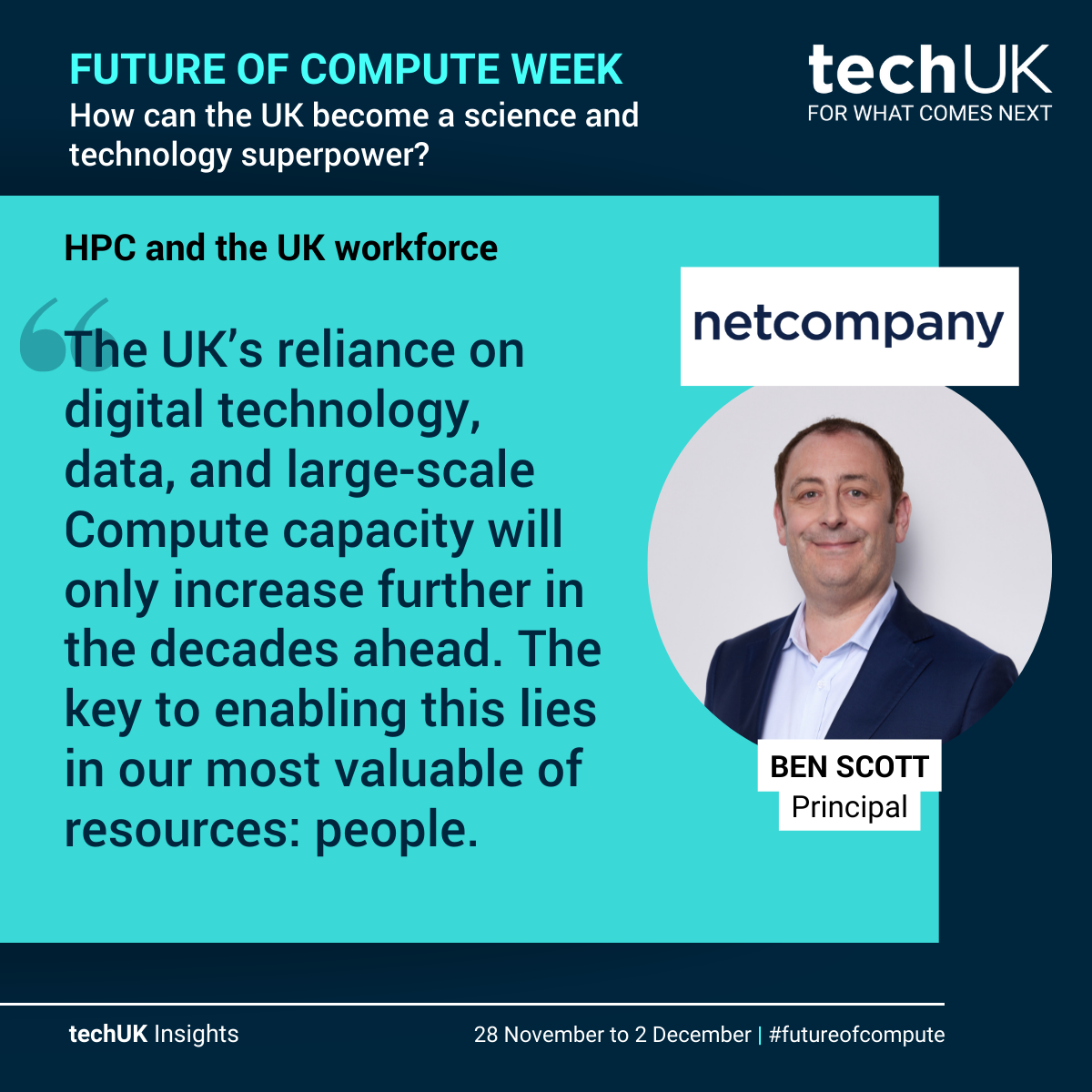We need to expand the UK’s available workforce to safeguard the future growth of compute

The UK’s reliance on digital technology, data, and large-scale Compute capacity will only increase further in the decades ahead. The key to enabling this lies in our most valuable of resources: people. Put simply, the UK tech sector’s critical shortage of skilled Compute professionals, if left unchecked, will restrict progress and suppress innovation.
So what can be done? From Netcompany’s origins in Denmark, and with a team of over 7,000 employees, we see things differently. While we don’t have all the answers, I hope a few of these suggestions will resonate.
Differentiate in a competitive environment
With a shortage of supply, the challenge of attracting and retaining talent is difficult. We are all familiar with candidates having multiple offers whilst maintaining a very specific list of requirements from the type and variety of work, to the location, to even the type of office. At Netcompany, we continue to grow our team year on year by an average of 20%. While difficult to do, we find that focusing on recruiting people with similar core values helps to differentiate us in a crowded market and also reduce attrition. We find this as simple as engaging with candidates and talking about the work we do in social value. Where there’s an affinity, the candidate’s passion is clear and they can’t wait to get involved.
We also invest heavily in the development of our people, through Netcompany’s own training Academy and our in-house mentoring scheme. I remember almost 30 years ago, at the start of my tech career, the company I joined was worried about training people because of a fear they would leave. Today, if we don’t commit to growing our people, they won’t join. And this is the way it should be, investing in people is clearly the right thing to do.
We recruit heavily from a short-listed group of UK universities. By being selective, we are able to align our requirements with their taught programmes and forge long term relationships. This relationship focus extends beyond milk rounds, to Netcompany sponsoring university projects and mentoring undergraduate students.
Let’s get more diverse talent into Compute
Our non-degree entry routes are in their infancy, but we are proud and excited by the long-term changes they are capable of facilitating. Everyone at Netcompany is humbled by this work and the differences we are seeing. Our initiatives in this area are varied between strategic and tactical, here are a few examples:
- Through the US Programme we work with young females from disadvantaged backgrounds to share opportunities within the tech sector, mentor them and set them on technology and digital career paths;
- We work with TechVets to identify service personnel up to 12 months before they leave, with the aim of recruiting them directly or opening a career in IT. During their year long notice period, we help them transition into civilian roles by pairing them with recent veterans already working in Netcompany, providing them with IT skills and training (which we extend to include their partners and children) and offer interview skills support;
- We are helping Ukrainian refugees to find careers in the UK’s tech sector by supporting them with interview skills and CV writing;
- We partner with Ahead Partnership which delivers enhanced awareness and interest in digital skills in the north of England. So far, they have reached over 1,200 young people encouraging them to choose a career in tech; and
- We’ve formed Employee Resource Groups to help share understanding, organise events and breakdown barriers within the business. Today, we have active groups focussed on Women, LGBQ+, Veterans, and Multiculture, with more consistently being created by internal staff.
Small changes lead to big impact
Developing the required number of skilled professionals in the UK’s Compute workforce remains a challenge, but if we all commit to one our two small initiatives to encourage more diverse talent into the sector, the future of Compute, and indeed, the wider tech sector in the UK will be safeguarded.

Rory Daniels
Rory joined techUK in June 2023 after three years in the Civil Service on its Fast Stream leadership development programme.

Ella Shuter
Ella joined techUK in July 2025 as Junior Programme Manager for Emerging Technologies.

Laura Foster
Laura is techUK’s Associate Director for Technology and Innovation.

Elis Thomas
Elis joined techUK in December 2023 as a Programme Manager for Tech and Innovation, focusing on Semiconductors and Digital ID.


